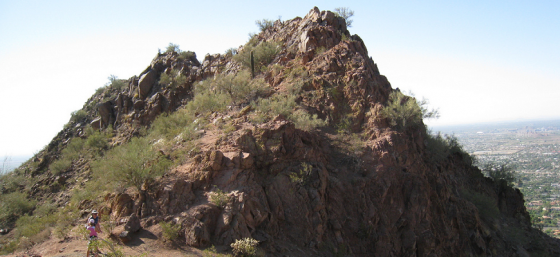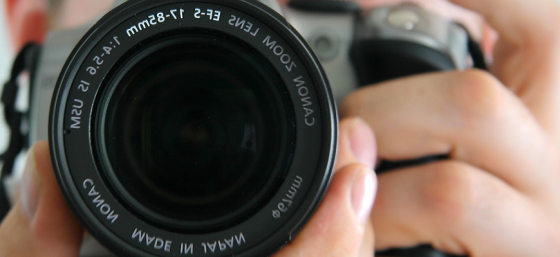Last week Pete Kosednar was hiking on Camelback Mountain when he saw a woman on the trail who didn’t have her dog on a leash. He turned on his video camera and asked her is she knew that her dog was supposed to be leashed. She didn’t appreciate being filmed and reacted by swearing at him and hitting him. Check out the video for yourself.
Was Pete Kosednar wrong to film this woman? No! She was in a public place where she had no expectation of privacy. As long as he wasn’t filming her to commercialize her image or filming her in a way that constituted any type of harassment, there’s nothing she could do to stop him from filming her. And now the video is on YouTube where everyone can see her behaving badly.
I understand that privacy is a hot-button topic for a lot of people. It is for me. However, you have no expectation of privacy for anything you do in view of the public so there’s nothing you can do to stop someone from filming you in most situations. Pete could probably strap a video camera to his head and tape most of his day-to-day activities without risk of penalty.
There are some places where you can expect to not be filmed like public bathrooms, tanning beds, locker rooms, and retail businesses that don’t allow you to take pictures or shoot video in the store. This woman was on Cholla Trail on Camelback Mountain. There are no special restrictions on shooting photos on video there.
It also amuses me when people make a scene about being filmed in public. We have surveillance cameras everywhere – in the stores and shopping centers, on courthouses, monitoring freeway traffic, etc. It’s funny when people accept those cameras as a part of every day life but freak out when someone turns on the camera in their phone when they’re standing on the sidewalk or in a public park.
The take-away lesson here is if you’re going to behave badly in public, whether you’re breaking the law, violating a social norm, or making an ass of yourself, don’t be surprised when you find out that someone videotaped it and posted it online.
Feel free to connect with me via Twitter, Google+, Facebook, and LinkedIn, or you can email me.
Please visit my homepage for more information about Carter Law Firm.
Check out my ebook on Amazon – The Legal Side of Blogging: How Not to get Sued, Fired, Arrested, or Killed
Hat tips to Phoenix New Times for running the story and Jeff Moriarty for telling me about it.


